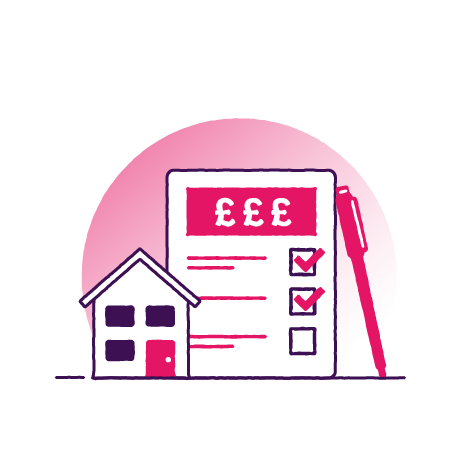On this page
NatWest mortgages are available to over 18s. Your home or property may be repossessed if you do not keep up repayments on your mortgage. The content on this webpage is guidance only and does not constitute advice.

Fixed rate vs. variable rate mortgages
Your mortgage deal and interest type can have a big impact on your mortgage payments. This is why it’s important to see whether a variable or fixed rate mortgage is right for you.
In this guide, we’ll explore fixed vs. variable rate mortgages. We’ll also see how each type works, and how to compare them.
What is a variable rate mortgage?
With a variable rate mortgage, your monthly repayments will change depending on the Bank of England base rate. This means that you may pay a different amount each month, depending on whether the base rate goes up or down.
Even though variable rates can change, it doesn’t always mean you’ll be paying more than a fixed rate deal. This is why it’s a good idea to do your research beforehand.
What’s the difference between a tracker and a Standard Variable Rate mortgage?
A tracker mortgage is a type of variable mortgage, meaning your monthly payments can rise and fall in line with the Bank of England base rate. With a tracker rate mortgage, you’ll usually pay base rate plus an additional percentage in interest every month. This is for an initial fixed term of normally between 2 and 5 years.
Find out more about tracker rate mortgages
A Standard Variable Rate mortgage is what you revert to once any initial mortgage term ends.
This rate will change in line with base rate and is normally higher than any initial introductory rate. Your lender should contact you before you move onto SVR and advise you of upcoming changes to your monthly payments.

Which mortgage type is best for me?
There is no one-size-fits-all when it comes to finding the right mortgage.
Whether you need a fixed or variable mortgage depends on your circumstances. It’s a good idea to do your research before you make your decision. This means looking into things like your lender’s fixed and tracker rates, as well as checking their current Standard Variable Rate.
If you want to find out more, speak to one of our expert Mortgage Advisers. They can give you advice on what mortgage type might be best for you. They’re also there to answer any questions you might have about interest rates or the application process.
